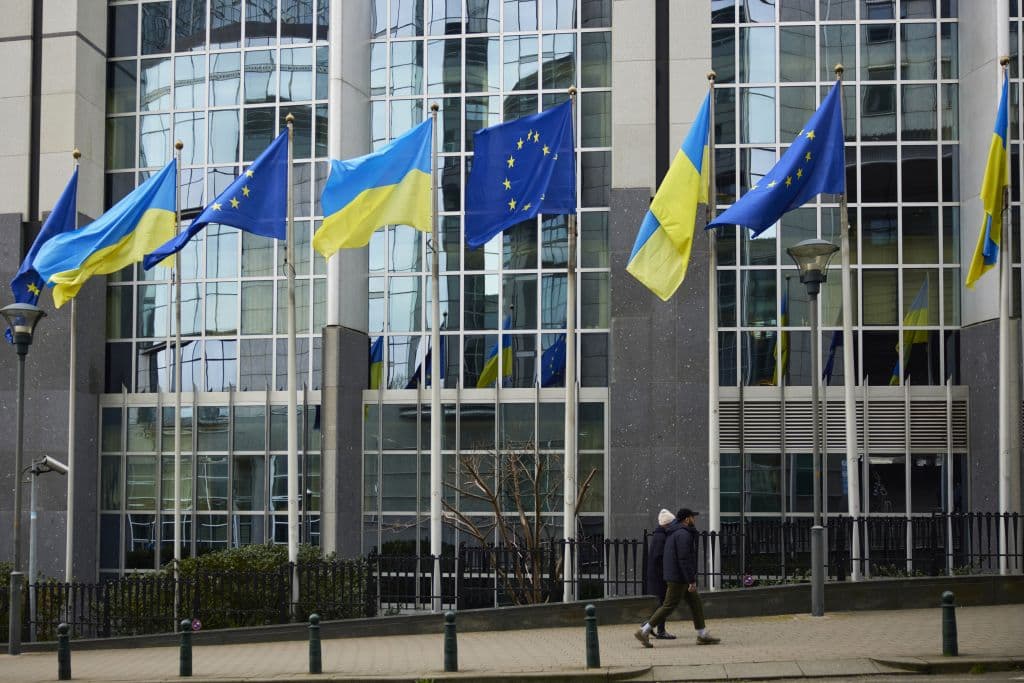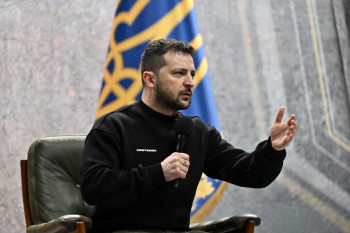Restrictions tighten in 10th EU sanctions package against Russia

The European Council announced in a statement on Feb. 25 that they had adopted the 10th package of sanctions against Russia and those who support its war against Ukraine.
"Today's 10th package of sanctions targets those who are instrumental in the continuation of this brutal war. We are taking more measures, tackling the banking sector, access to dual-use technology and advanced technologies," the European Union's top diplomat Josep Borrell said, as quoted by the statement.
On Twitter, Borrell wrote that the new sanctions package targets 121 individuals and entities, and also includes significant new import and export restrictions, and bans Russian propaganda outlets.
"We remain united in our determination to dent Russia's war machine," he wrote.
According to the statement, seven Iranian entities that manufacture drones Russia has been using to attack Ukraine are coming under EU sanctions for the first time.
Russia has been using Iranian-made kamikaze drones to attack Ukraine since September, launching attacks against civilians and destroying energy facilities nationwide.
The new sanctions package also "imposes further export bans on critical technology and industrial goods, such as electronics, specialized vehicles, machine parts, spare parts for trucks and jet engines, as well as goods for the construction sector, which can be directed to Russia's military, such as antennas or cranes."
Also, further restrictions are imposed on imports of goods that "generate significant revenues for Russia, such as asphalt and synthetic rubber." The new sanctions also prohibit providing gas storage capacity to Russian nationals.
The Council said they had also started the process for suspending the broadcasting licenses of RT Arabic and Sputnik Arabic media outlets since Russia has been using them for its "continuous and concerted disinformation and war propaganda actions."
According to Borrell, the new sanctions also target those responsible for the deportation and forced adoption of "at least 6.000 Ukrainian children."
"This is a clear violation of international law, including the Geneva convention, as I raised at UN Security Council yesterday," Borrell wrote.
On Feb. 24, the U.S. also introduced an additional package of sanctions against Russia, targeting banks and key suppliers of the Russian military sector. Restrictions will be imposed on more than 200 individuals and entities within Russia and worldwide "to further degrade Russia's economy and diminish its ability to wage war against Ukraine."
Earlier on Feb. 22, Politico reported, citing three unnamed diplomats familiar with the matter, that Hungarian Prime Minister Viktor Orban threatened to veto the extension of EU sanctions against Russia, which must be renewed every six months.












